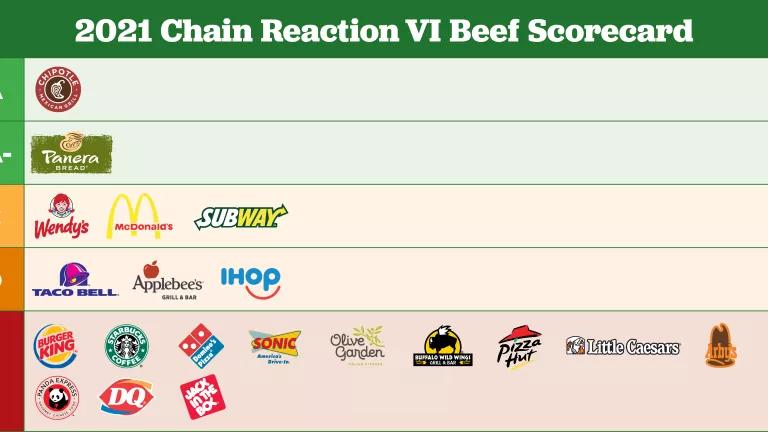
NRDC and our allies—Consumer Reports, Food Animal Concerns Trust, U.S. Public Research Interest Group Education Fund, Antibiotic Resistance Action Center at the George Washington University School of Public Health, and the Center for Food Safety—annually review and grade the largest fast-food and -casual U.S. restaurant chains on their policies regarding the use of antibiotics in the meat they serve. We also look at how these policies are being implemented and whether companies are transparent about their progress in reducing antibiotic use. The results are published in a report called Chain Reaction.
When top restaurant chains voluntarily commit to ending the routine use of antibiotics in their supply networks, they can ignite broader change in practices across the meat industry. Ending routine antibiotics use can help slow the spread of antibiotic-resistant bacteria and keep these critical medicines working to treat infections in people and animals. Restaurant chains were instrumental in helping to transform antibiotic use practices in the chicken industry in recent years. Unfortunately, when it comes to beef and pork, we’ve seen little in the way of meaningful change.
The 2021 Chain Reaction report focuses specifically on how top restaurant chains are or are not addressing antibiotic use in their beef supplies, highlighting the need for action in this sector.
Commitments from companies are a critical part of the solution to the antibiotics resistance crisis. But the market alone will not solve the problem. The U.S. Food and Drug Administration must also regulate antibiotics across the livestock sector by banning the routine use of these drugs for disease prevention—not just growth promotion—and by setting a national goal for concrete reductions in livestock antibiotics use.



